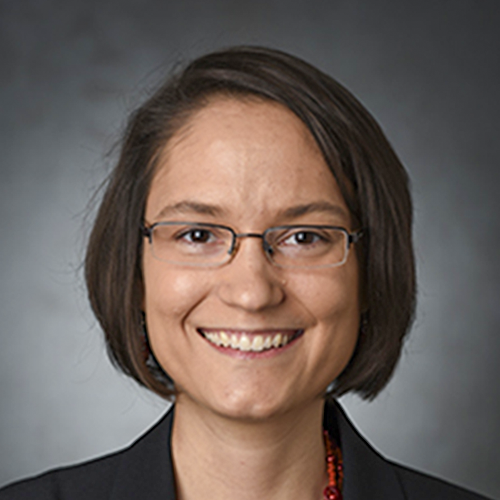Allison Beese, associate professor of materials science and engineering, will serve as co-director of the Center for Innovative Materials Processing through Direct Digital Deposition, effective Jan 1.
This is a really exciting time to be working in additive manufacturing and I’m honored to step into this position, joining Ted Reutzel and Tim Simpson on the CIMP-3D leadership team to help push forward the great work in this field that’s already happening at Penn State.
Allison Beese
Additive manufacturing, or AM, commonly called 3D printing, is a fast-growing technology to build parts layer by layer. Advances in the technology allow these parts to be built from materials like polymers, ceramics and metals and used in cutting-edge applications in the aerospace, medical, energy and defense industries.
CIMP-3D operates and maintains a state-of-the-art processing laboratory that can process these materials and unites experts from across disciplines in the College of Engineering, the College of Earth and Mineral Sciences, the Materials Research Institute and the Applied Research Laboratory.
“At Penn State, we have experts working in every aspect of additive manufacturing, from design to process planning, in situ process monitoring and control to part characterization,” Beese said. “From a materials standpoint, we have people working on all materials classes currently used in AM, as well as people designing new materials and methods to push the technology forward.”
Beese said her goals as co-director include bringing the community together to pursue multidisciplinary research opportunities, and ensure growth in emergent areas, particularly related to advanced materials – for example, the development of ceramic materials for use in hypersonics, the use of machine learning for AM process improvement and the design and fabrication of functionally graded materials.
“I think we can keep pushing boundaries on cutting-edge research by bringing the community together to create new teams and synergies,” Beese said. “This will enable us to approach even bigger problems and continue to expand CIMP-3D’s reach in the AM community.”
Beese also serves as director the additive manufacturing and design (AMD) program at Penn State, and said her dual roles with the graduate program and CIMP-3D can provide a valuable bridge linking students and research opportunities.
“The link between the formal education provided through AMD and the facilities, faculty and staff in CIMP-3D provides potential projects for AMD students, while also enabling the expansion of research based on student interests,” Beese said.
Beese’s research group focuses on identifying the effect of microstructure on macroscopic mechanical behavior, namely deformation and fracture. They use a range of methods, including experimental characterization, in situ process monitoring, machine learning and computational simulations to identify processing-structure-property linkages in AM.
Her team has made advancements in understanding how internal defects in additively manufactured metals impact their failure behavior, providing an understanding necessary for part qualification and the safe adoption of AM. They have also developed methods for characterizing and designing functionally graded materials made by AM, material in which the composition and therefore properties vary spatially within a component for enhanced performance, for example high strength and corrosion resistance.
She received her bachelor of science in mechanical engineering from Penn State. She then worked as an engineer at Knolls Atomic Power Laboratory before entering graduate school. She earned her masters of science and doctorate in Mechanical Engineering from the Massachusetts Institute of Technology. Prior to joining Penn State in 2013, she held a post-doctoral appointment at Northwestern University. Beese’s contributions have been highlighted with numerous awards — the Minerals, Metals & Materials Society AIME Robert Lansing Hardy Award, a National Science Foundation Early Career Development Award and the International Outstanding Young Researcher in Freeform and Additive Manufacturing Award.
